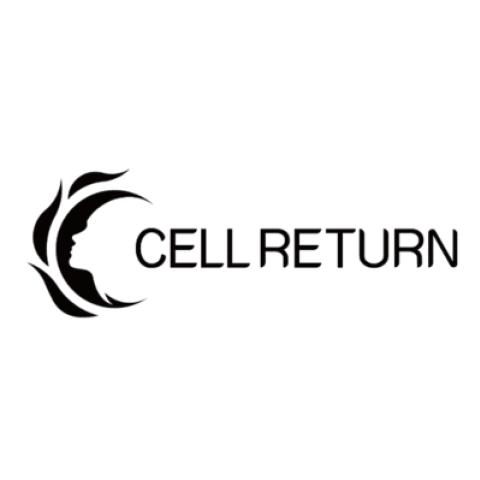What is
Hybrid Crypto Exchange?
Hybrid
crypto exchanges represent an innovative fusion of centralized and
decentralized exchange models, offering the best of both worlds. They aim to
provide the security and user control found in decentralized exchanges while
maintaining the liquidity and speed of centralized systems. This hybrid
approach is designed to address the limitations inherent in each of the
traditional models independently.
In a hybrid
crypto exchange, users can experience enhanced security measures typical of
decentralized exchanges without sacrificing the efficiency and ease of use that
centralized exchanges are known for. This means that traders can maintain
control over their private keys, ensuring that their assets remain secure even
while benefiting from the high transaction speeds.
The growing
interest in hybrid crypto exchanges is driven by the demand for a more
versatile and secure trading environment. As the crypto market matures, traders
are increasingly seeking platforms that can offer both the security of
decentralized exchanges and the liquidity that centralized exchanges provide.
What is
Hybrid Exchange Development?
Hybrid exchange development involves the creation and
implementation of a trading platform that combines the strengths of both
centralized and decentralized exchanges. This development process requires a
deep understanding of blockchain technology, security protocols, and user experience
design to effectively integrate the two models.
The
development of a hybrid exchange focuses on building a platform that can handle
high transaction volumes while maintaining user privacy and security. This
involves creating an architecture that can support both on-chain and off-chain
transactions, providing users with the flexibility to choose how they wish to
trade.
Developing a
hybrid exchange also involves selecting the right technological stack and
ensuring regulatory compliance across different jurisdictions. This requires
collaboration with legal experts and blockchain developers to create a platform
that is both user-friendly and aligned with global regulatory standards.
Key
Features of Hybrid Crypto Exchanges
Hybrid
crypto exchanges come with several key features that set them apart from
traditional exchange models. These features are designed to offer a superior
trading experience:
Enhanced
Security: By
allowing users to control their private keys, hybrid exchanges enhance the
security of user funds compared to traditional centralized exchanges.
High
Liquidity: With the
integration of centralized features, hybrid exchanges can offer the liquidity
crucial for executing large transactions quickly.
User
Privacy: Hybrid
exchanges often implement advanced privacy protocols, ensuring that user data
and transaction details remain confidential.
Speed and
Efficiency: The
combination of centralized and decentralized mechanisms ensures that
transactions are processed quickly without sacrificing security.
Interoperability: Hybrid exchanges can connect with
multiple blockchain networks, offering users a wide range of trading options
and increasing the platform’s versatility.
These
features collectively enhance the trading experience, making hybrid exchanges
an attractive option for both novice and experienced traders.
Benefits
of Hybrid Exchange Development
The
development of hybrid exchanges offers numerous benefits to both developers and
users. Here are five significant advantages:
Increased
Security: By
leveraging decentralized features, hybrid exchanges protect users from hacking
threats that typically target centralized exchanges.
Greater
Control: Users
maintain control over their assets, reducing the risk of fund mismanagement or
loss by the exchange operators.
Regulatory
Compliance: Hybrid
exchanges can be designed to comply with various regulatory requirements,
facilitating smoother operations across different regions.
Scalability:
The hybrid model
supports high transaction volumes, making it suitable for a growing user base
and the increasing demand for crypto trading.
Innovation
and Flexibility: The
hybrid approach encourages continuous innovation, allowing for the integration
of new features and improvements as blockchain technology evolves.
These
benefits make hybrid exchange development a promising avenue for the future of
crypto trading platforms.
How
Hybrid Crypto Exchanges Work
Hybrid
crypto exchanges operate by merging the operational aspects of both centralized
and decentralized exchanges. Here’s a closer look at how they function:
In a hybrid
exchange, the order book and transaction matching are generally handled
off-chain, similar to centralized exchanges. This allows for rapid trade
execution and minimizes latency issues. However, the custody of funds and
settlement occurs on-chain, providing the security benefits associated with
decentralized exchanges.
Users can
execute trades quickly without having to transfer their assets to the exchange.
Instead, trades are settled directly on the blockchain, ensuring that users
retain full control over their funds. This model offers a balance of speed,
security, and user control, making it an appealing choice for crypto traders.
The hybrid model also allows for the integration of smart contracts, which automate and enforce the terms of trade agreements. This not only enhances security but also reduces the need for intermediaries, further streamlining the trading process.
Steps to
Develop a Hybrid Crypto Exchange
Developing a
hybrid crypto exchange involves several key steps, each essential for creating
a robust and reliable platform:
Market
Research: Understand
the current market trends and user needs to design a platform that meets trader
expectations.
Technology
Stack Selection:
Choose the right technologies that can support both on-chain and off-chain
operations efficiently.
Design
and Development:
Develop the platform architecture, ensuring it is scalable, secure, and
user-friendly.
Security
Implementation:
Integrate advanced security protocols to protect user data and funds.
Testing
and Deployment:
Thoroughly test the platform for bugs and vulnerabilities before launching it
to the public.
Regulatory
Compliance: Ensure
the platform adheres to legal and regulatory standards in all operational
jurisdictions.
By following
these steps, developers can create a hybrid exchange that offers a seamless and
secure trading experience.
Challenges
in Hybrid Exchange Development
While hybrid
exchange development offers many benefits, it also presents several challenges
that must be addressed:
Complex
Integration:
Combining centralized and decentralized elements requires sophisticated
technology and expertise, which can complicate the development process.
Regulatory
Hurdles: Navigating
the regulatory landscape can be daunting, especially as laws differ
significantly across countries and are constantly evolving.
Security
Concerns: Ensuring
robust security is critical, as hybrid exchanges are still vulnerable to
potential cyber threats despite enhanced measures.
User
Experience:
Balancing the technical requirements and user-friendly interface can be
challenging, as traders demand both efficiency and simplicity.
Addressing
these challenges is essential for the successful development and deployment of
a hybrid crypto exchange.
Why
Hivelance is the Best Place to Build Your Hybrid Crypto Exchange?
When
considering the development of a hybrid crypto
exchange,
choosing the right partner is crucial. Hivelance stands out as a leading
provider of blockchain solutions, offering comprehensive services tailored to the
development of hybrid exchanges.
Hivelance
boasts a team of experienced blockchain developers who understand the
intricacies of combining centralized and decentralized technologies. Their
expertise ensures that your exchange will be built on a solid foundation,
capable of handling the demands of modern crypto trading.
Moreover,
Hivelance is committed to staying ahead of industry trends, incorporating the
latest technological advancements into their solutions. This dedication ensures
that your hybrid exchange will not only meet current standards but also be
prepared for future developments in the crypto space.















